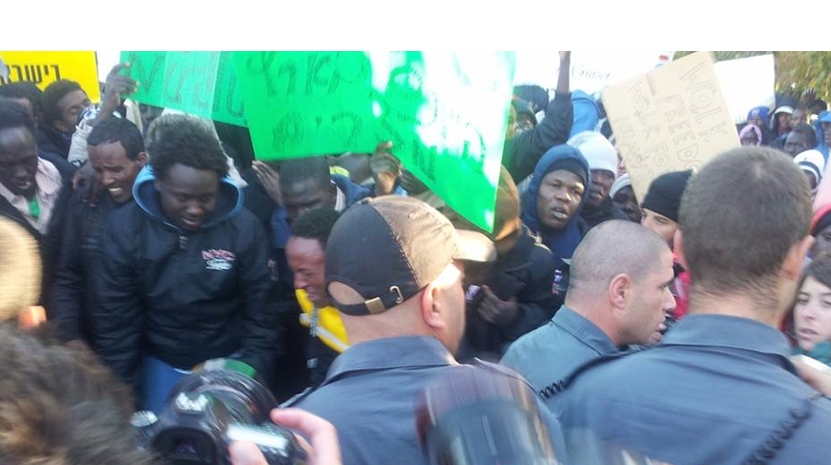Police and immigration enforcement officers rounded up hundreds of African migrants and refugees rallying in Jerusalem on Tuesday, where they demanded the state recognize their asylum claims and stop imprisoning them in the detention centers in Israel’s south. Prime Minister Benyamin Netanyahu said of the protesters, “a law is a law, and it certainly applies to illegal workers,” adding that the migrants that were moved to the open facility “can either stay there, or return to their countries.”
Around 3 p.m. outside of the Knesset, a representative of the Population, Immigration, and Borders Authority (PIBA) arrived and told the migrants they had to get on the bus or they would be removed by force. Many made their way willingly onto the buses while others refused, and were forcibly placed on the buses by special police unit officers (Yassam) and immigration enforcement officers. The bus loads of around 200 migrants that left Jerusalem made their way back to the Negev, where they will now be housed in the Saharonim closed prison, instead of in Holot.
The crowd of around 300 people marched from in front of the Prime Minister’s Office past the Bank of Israel and the Ministry of Foreign Affairs to demonstrate in front of the Supreme Court of Israel and the Knesset. They held signs reading “We are refugees. Not criminals,” “We walk for freedom and humanity,” “No more prison! Freedom – Yes; Prison – No,” and signs with quotes from Nelson Mandela and Martin Luther King Jr. among others. MK Dov Khenin (Hadash) told the crowd “I do hope that the Israeli public will get the message that first of all there are people here. Not a threat. Not a danger to Israeli society. But real people who are actually fighting for their own lives and own future.” Khenin said the decision to come to Jerusalem shows the migrants were not making a simple escape, saying “they could have come to Beersheba and disappear all around the country. But they decided to stay together and to protest together in order to deliver a message to they Israeli society and Israeli public that they are fighting for their status as asylum seekers, their status as refugees.”



